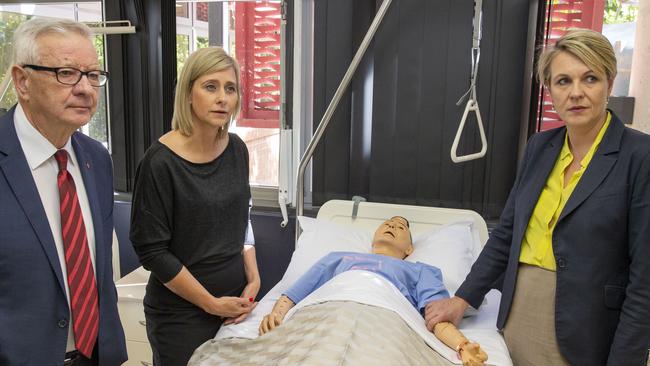‘Unintended dual citizen trap’ for innocent by-election victors
Political candidates who have no dual citizenship concerns and win elections could still face constitutional challenges.

Political candidates who have no dual citizenship concerns and win elections could still face constitutional challenges if they enter federal parliament with the help of preferences from candidates found to be ineligible, according to the head of parliament’s electoral matters committee.
The warning comes ahead of the critical Super Saturday by-elections and after recent High Court rulings that reaffirmed candidates cannot, under section 44 of the Constitution, be dual citizens at the time of their nomination — even if they have taken steps to renounce their citizenship of the second country.
Liberal senator Linda Reynolds, who chairs the Joint Standing Committee on Electoral Matters, raised a scenario in which an election was called into question because the winning contestant had relied on preferences from an ineligible candidate. Senator Reynolds said it was an untested but “new and unintended” consequence of court judgments.
“This is not a loophole,” she told The Australian. “It is a clear constitutional interpretation decided in the High Court which can only be changed by a referendum (on section 44).”
University of NSW constitutional law expert George Williams agreed the hypothetical situation flagged by Senator Reynolds was “a possibility, if as yet untested”.
“The key would be to show that a disqualified candidate has altered the result by way of changing the preference flows,” he said.
An election can be disputed by a petition to the Court of Disputed Returns within 40 days of the return of the writ.
Anne Twomey, a constitutional lawyer with the University of Sydney, said it was “unlikely” an elected candidate who was eligible to sit in parliament would be found to be invalidly chosen “simply because an unsuccessful candidate in the election was disqualified”.
“First, the disqualifications in section 44 of the Constitution are only directed at the person ‘chosen’, not at the other candidates. Disqualification prevents a person from being chosen, but not from nominating,” she said. “A problem would only arise if the Commonwealth Electoral Act included provisions that prevented a person from being ‘chosen’ if other candidates were subject to the disqualifications set out in the Constitution. This is not apparent on its face.”
The eligibility of many of the 48 candidates contesting the five by-elections on July 28 remains in doubt after 17 of them chose either not to complete new section 44 “qualification checklists” or did not give permission for the Australian Electoral Commission to publish them.
Three of the by-elections were triggered after Labor candidates were found to be unconstitutionally elected because they were British citizens when they nominated.
Opposition Leader Bill Shorten, campaigning yesterday alongside his candidate for the Tasmanian seat of Braddon, Justine Keay, called for all by-election candidates to complete their checklists to show voters they were eligible to run for parliament. “It’s common sense of the candidates to remove any doubt,” he said.
Deputy Labor leader Tanya Plibersek and opposition skills spokesman Doug Cameron inspected a medical training ward in the Queensland seat of Longman with candidate and former dual citizen Susan Lamb.





